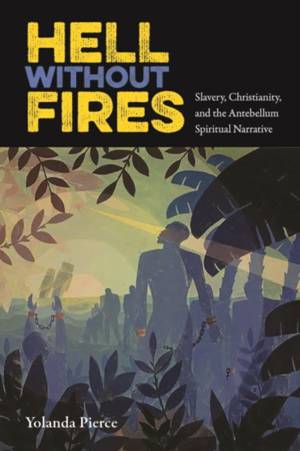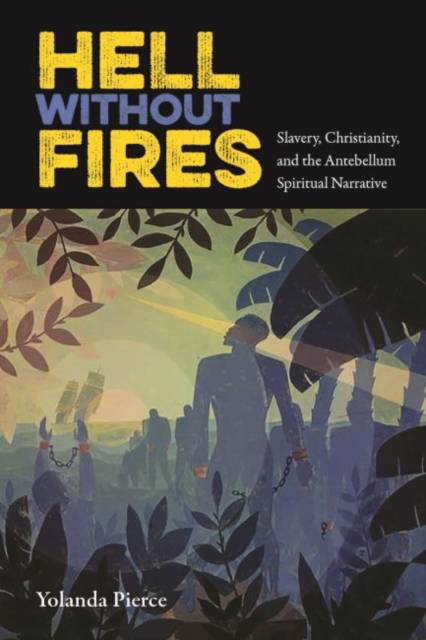
- Afhalen na 1 uur in een winkel met voorraad
- Gratis thuislevering in België vanaf € 30
- Ruim aanbod met 7 miljoen producten
- Afhalen na 1 uur in een winkel met voorraad
- Gratis thuislevering in België vanaf € 30
- Ruim aanbod met 7 miljoen producten
Zoeken
€ 38,45
+ 76 punten
Uitvoering
Omschrijving
Hell Without Fires examines the spiritual and earthly results of conversion to Christianity for African-American antebellum writers. Using autobiographical narratives, the book shows how black writers transformed the earthly hell of slavery into a "New Jerusalem," a place they could call home. Yolanda Pierce insists that for African Americans, accounts of spiritual conversion revealed "personal transformations with far-reaching community effects. A personal experience of an individual's relationship with God is transformed into the possibility of liberating an entire community." The process of conversion could result in miraculous literacy, "callings" to preach, a renewed resistance to the slave condition, defiance of racist and sexist conventions, and communal uplift.
These stories by five of the earliest antebellum spiritual writers--George White, John Jea, David Smith, Solomon Bayley, and Zilpha Elaw--create a new religious language that merges Christian scripture with distinct retellings of biblical stories, with enslaved people of African descent at their center. Showing the ways their language exploits the levels of meaning of words like master, slavery, sin, and flesh, Pierce argues that the narratives address the needs of those who attempted to transform a foreign god and religion into a personal and collective system of beliefs. The earthly "hell without fires"--one of the writer's characterizations of everyday life for those living in slavery--could become a place where an individual could be both black and Christian, and religion could offer bodily and psychological healing. Pierce presents a complex and subtle assessment of the language of conversion in the context of slavery. Her work will be important to those interested in the topics of slave religion and spiritual autobiography and to scholars of African American and early American literature and religion.
These stories by five of the earliest antebellum spiritual writers--George White, John Jea, David Smith, Solomon Bayley, and Zilpha Elaw--create a new religious language that merges Christian scripture with distinct retellings of biblical stories, with enslaved people of African descent at their center. Showing the ways their language exploits the levels of meaning of words like master, slavery, sin, and flesh, Pierce argues that the narratives address the needs of those who attempted to transform a foreign god and religion into a personal and collective system of beliefs. The earthly "hell without fires"--one of the writer's characterizations of everyday life for those living in slavery--could become a place where an individual could be both black and Christian, and religion could offer bodily and psychological healing. Pierce presents a complex and subtle assessment of the language of conversion in the context of slavery. Her work will be important to those interested in the topics of slave religion and spiritual autobiography and to scholars of African American and early American literature and religion.
Specificaties
Betrokkenen
- Auteur(s):
- Uitgeverij:
Inhoud
- Aantal bladzijden:
- 166
- Taal:
- Engels
- Reeks:
Eigenschappen
- Productcode (EAN):
- 9780813068596
- Verschijningsdatum:
- 5/10/2021
- Uitvoering:
- Paperback
- Formaat:
- Trade paperback (VS)
- Afmetingen:
- 152 mm x 229 mm
- Gewicht:
- 249 g

Alleen bij Standaard Boekhandel
+ 76 punten op je klantenkaart van Standaard Boekhandel
Beoordelingen
We publiceren alleen reviews die voldoen aan de voorwaarden voor reviews. Bekijk onze voorwaarden voor reviews.











